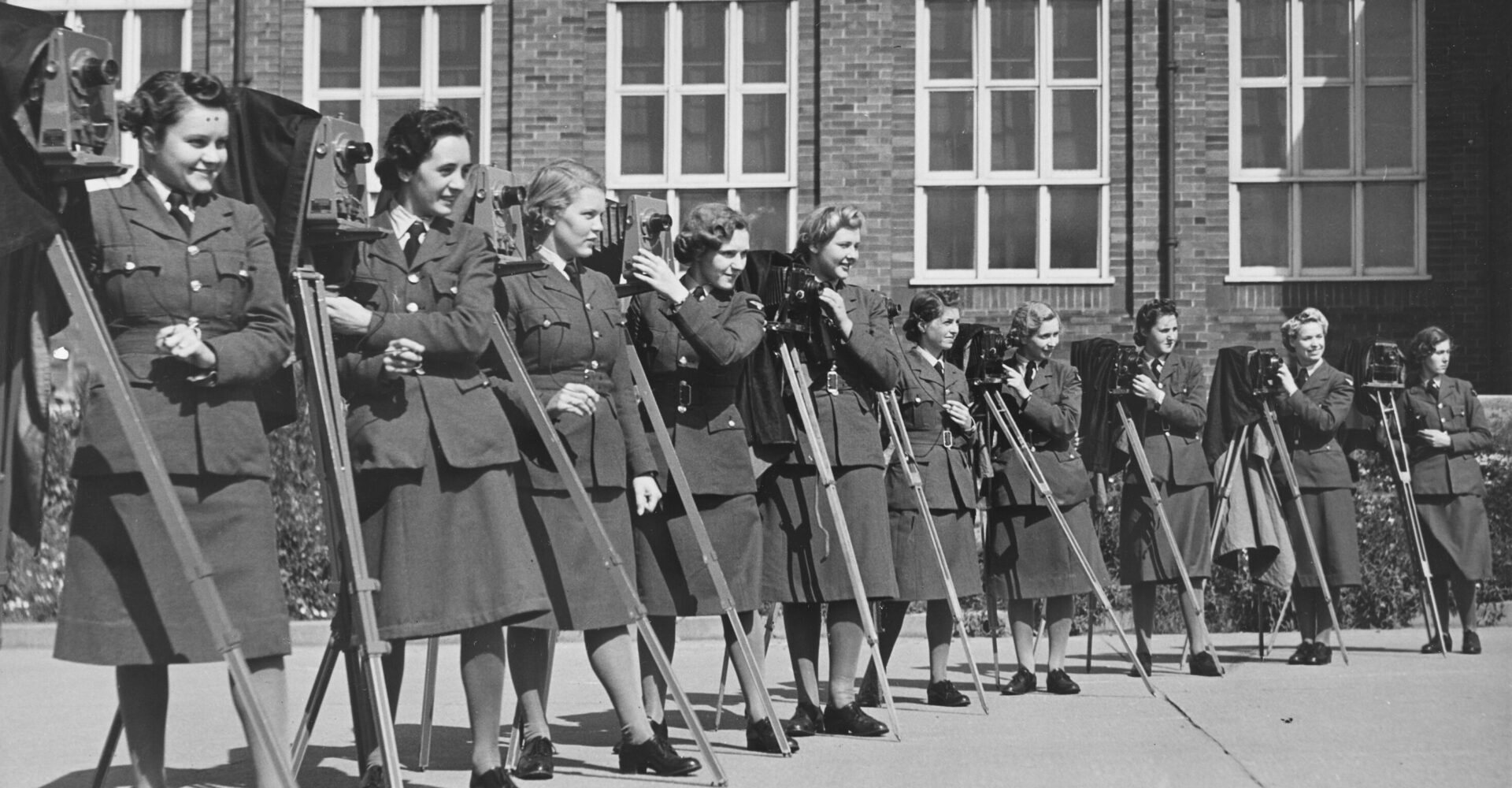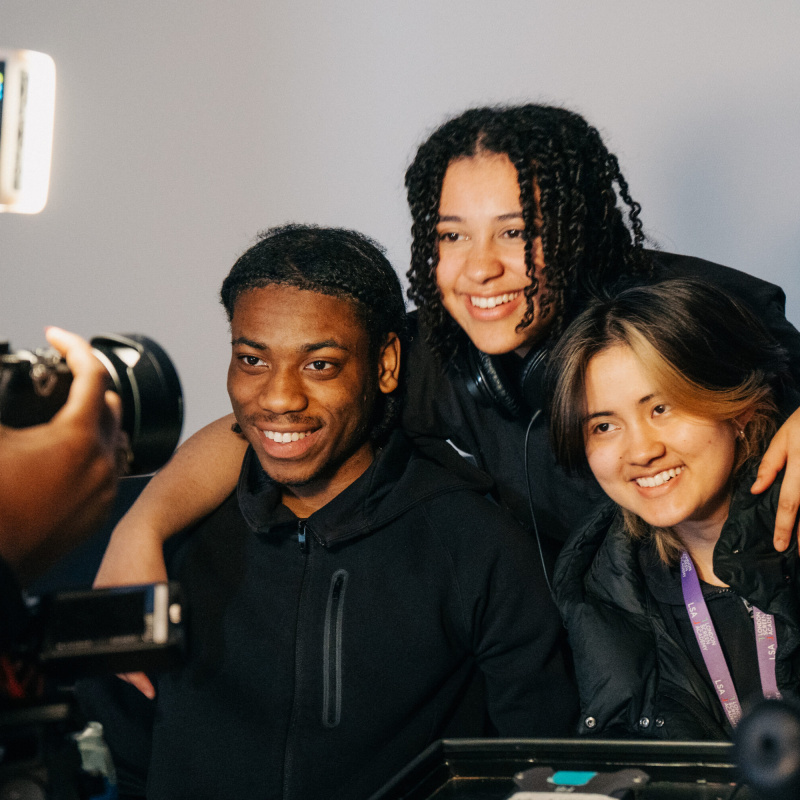- To celebrate the 80th anniversary of VE Day, Historic England has revealed a fascinating collection of photographs showing rare behind-the-scenes shots at Pinewood Studios and the pioneering role of women in wartime photography
- This remarkable collection captures the hidden story of military filmmaking during the Second World War at the famous Pinewood Studios in Buckinghamshire
- It documents the role of Dorothy ‘Knicky’ Chapman, who was among the first women trained in wartime photography before being posted to Pinewood Studios
- Over 150 photographs showing a woman’s perspective of the Second World War, providing insight into photography and film during wartime
- Share your stories of the women of the RAF Film Production Unit
In celebration of the 80th anniversary of VE Day, Historic England’s Archive has published a fascinating collection of photographs capturing the hidden story of wartime filmmaking and the pioneering role of women in military photography during the Second World War.
The collection was put together by Dorothy ‘Knicky’ Chapman, who was part of the first intake of the Women’s Auxiliary Air Force (WAAF) at the No. 2 School of Photography in Blackpool before being posted to the famous Pinewood Studios, the central hub of military filmmaking.
This remarkable collection has over 150 photographs capturing the perspective of a woman wartime photographer, featuring behind-the-scenes shots from Chapman’s posting at Pinewood Studios and previously unseen images of her WAAF training.
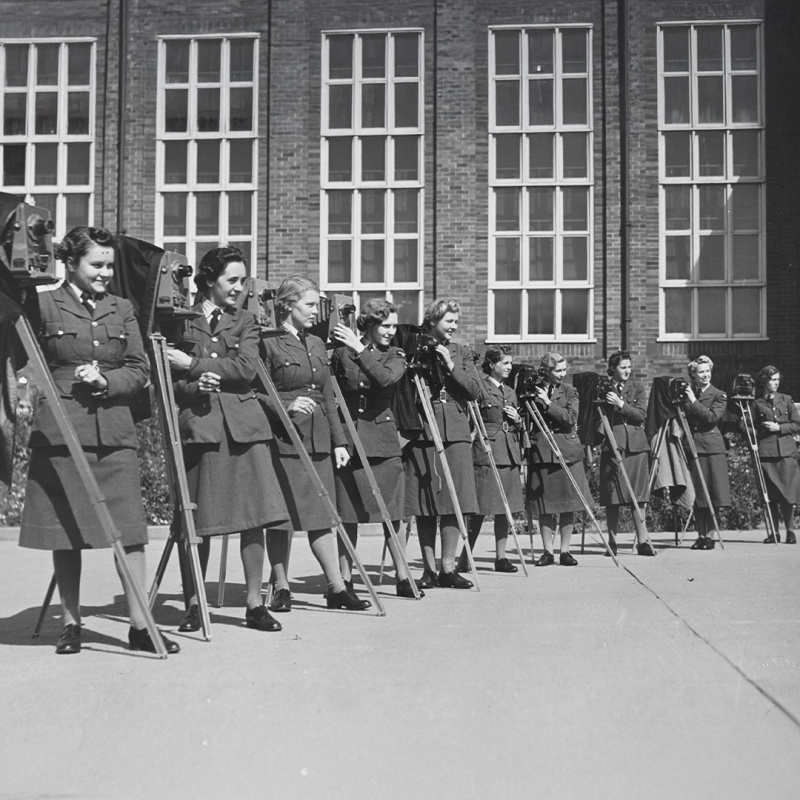 A group of women from the Women's Auxiliary Air Force, in military uniform, posed with their cameras outside the RAF's No. 2 School of Photography
A group of women from the Women's Auxiliary Air Force, in military uniform, posed with their cameras outside the RAF's No. 2 School of Photography
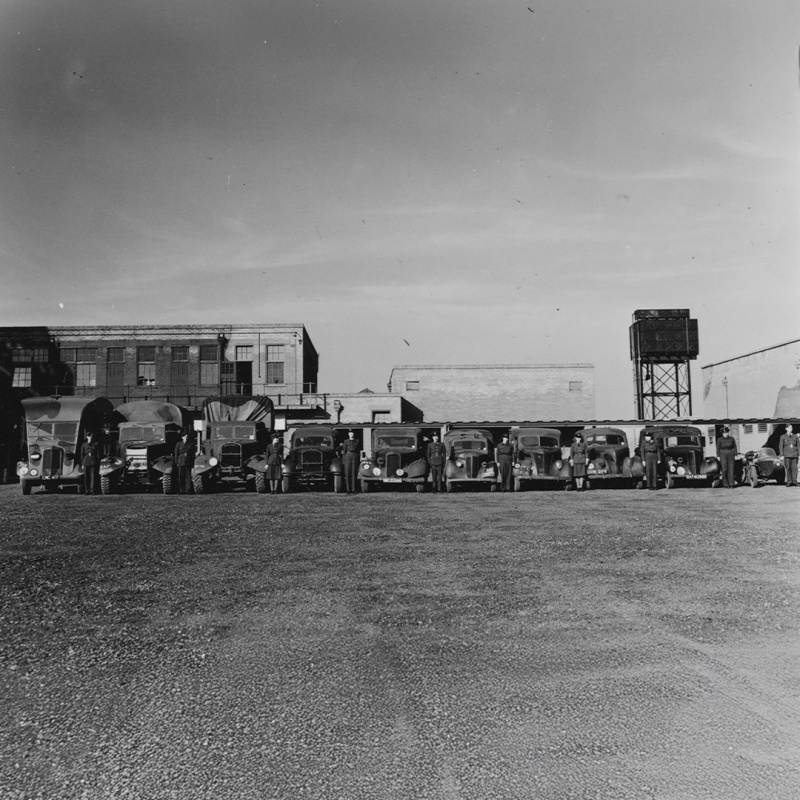 RAF military vehicles and their drivers, at RAF Iver Heath, Pinewood Studios, with the studio buildings in the background
RAF military vehicles and their drivers, at RAF Iver Heath, Pinewood Studios, with the studio buildings in the background
Behind-the-scenes at Pinewood Studios: the hidden story of wartime filmmaking
During the Second World War, Pinewood Studios acted as the base for Government film units, including the RAF Film Production Unit (RAFFPU) and the Army Film and Photographic Unit (AFPU), and was known as RAF Iver Heath. The collection contains striking behind-the-scenes shots of the world-famous film studio during the war years, featuring photographs of the building of model aeroplanes for film productions, as well as RAF and WAAF officers at work.
The photographs offer a rare glimpse of Pinewood Studios during the war. Film and Photography units for the RAF and the army were based at Pinewood Studios and formed an integral part of the war effort, producing films that shaped public perception and increased international support for the Allied Forces. Vital time-critical newsreels and coverage of key events in the war were created, including the D-Day landings.
Knicky (pronounced Nicky) Chapman was posted to the RAFFPU at Pinewood Studios, where she assisted in the production of military films, such as ‘The Big Pack’ and ‘Operational Height’. These provided rare insight into the RAF’s operations and were crucial for maintaining public morale during wartime.
Chapman was one of the select few to work on the Stills department, and the collection features stills from a number of the RAF’s film sets and productions. She also worked alongside notable talents who would later shape the British film industry, including a young Richard Attenborough.
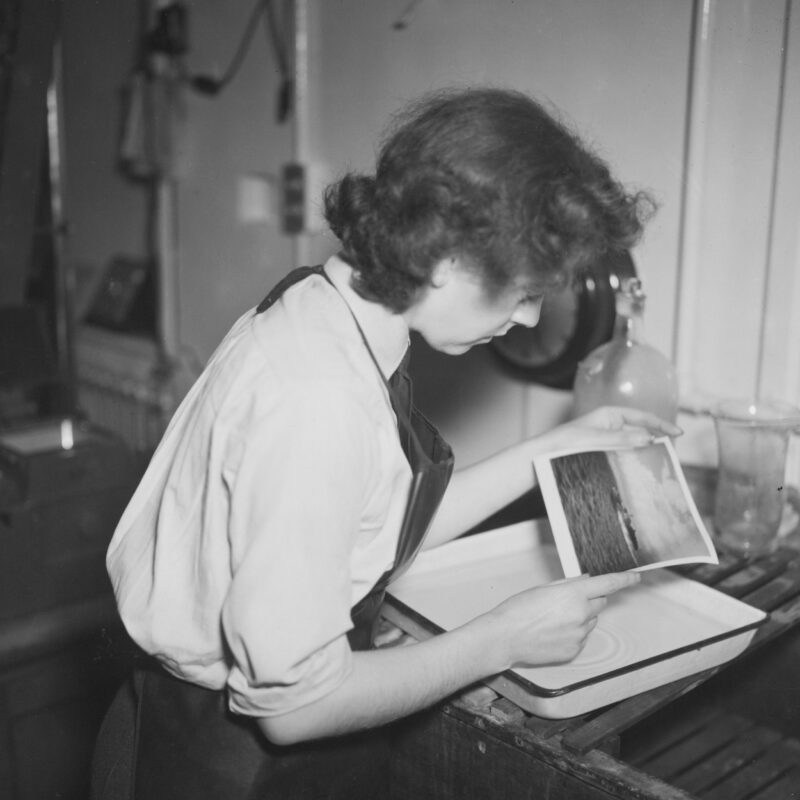 WAAF officer Freda Pocock at work in the Stills Department of the RAF Film Production Unit at RAF Iver Heath, Pinewood Studios
WAAF officer Freda Pocock at work in the Stills Department of the RAF Film Production Unit at RAF Iver Heath, Pinewood Studios
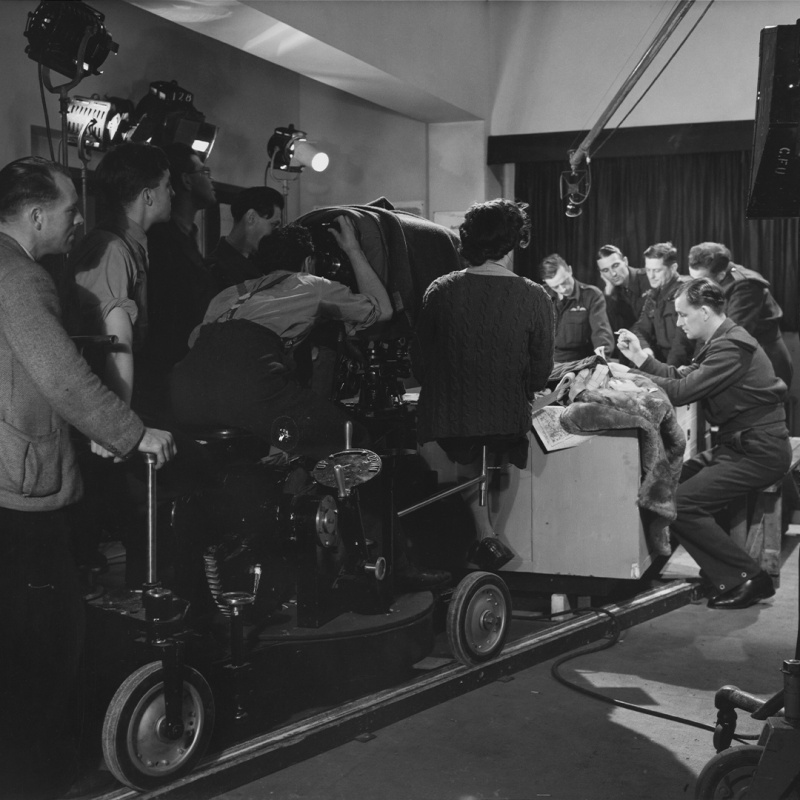 Publicity still from the film 'Night Flight' produced by the RAF Film Production Unit during the Second World War, showing a camera crew filming a group of RAF personnel around a table covered with charts
Publicity still from the film 'Night Flight' produced by the RAF Film Production Unit during the Second World War, showing a camera crew filming a group of RAF personnel around a table covered with charts
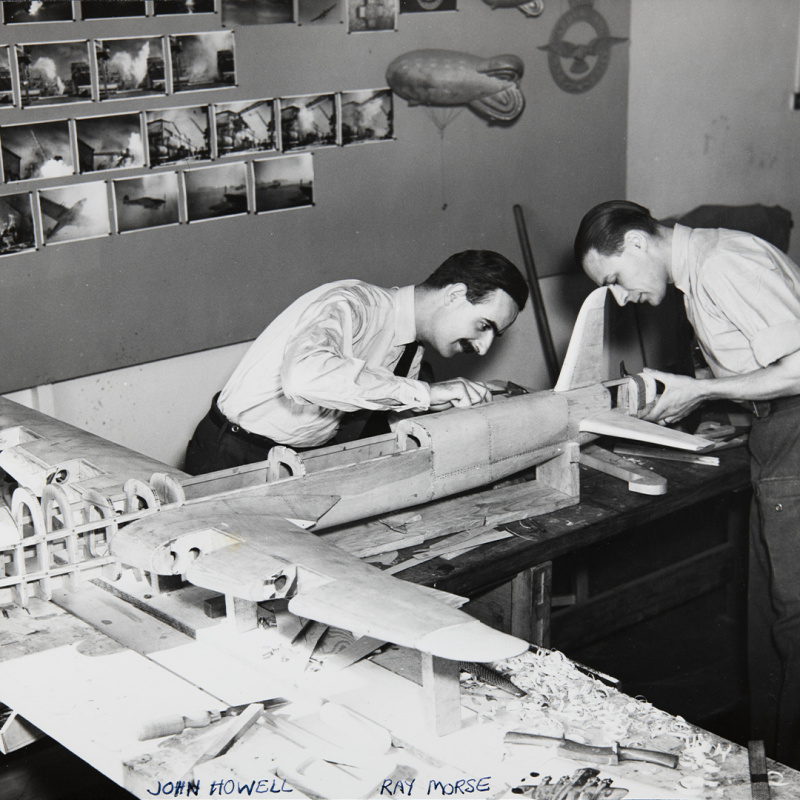 RAF officers John Howell and Ray Morse working on a model of a Stirling aircraft at RAF Iver Heath, Pinewood Studios, for use in an RAF Film Production Unit film
RAF officers John Howell and Ray Morse working on a model of a Stirling aircraft at RAF Iver Heath, Pinewood Studios, for use in an RAF Film Production Unit film
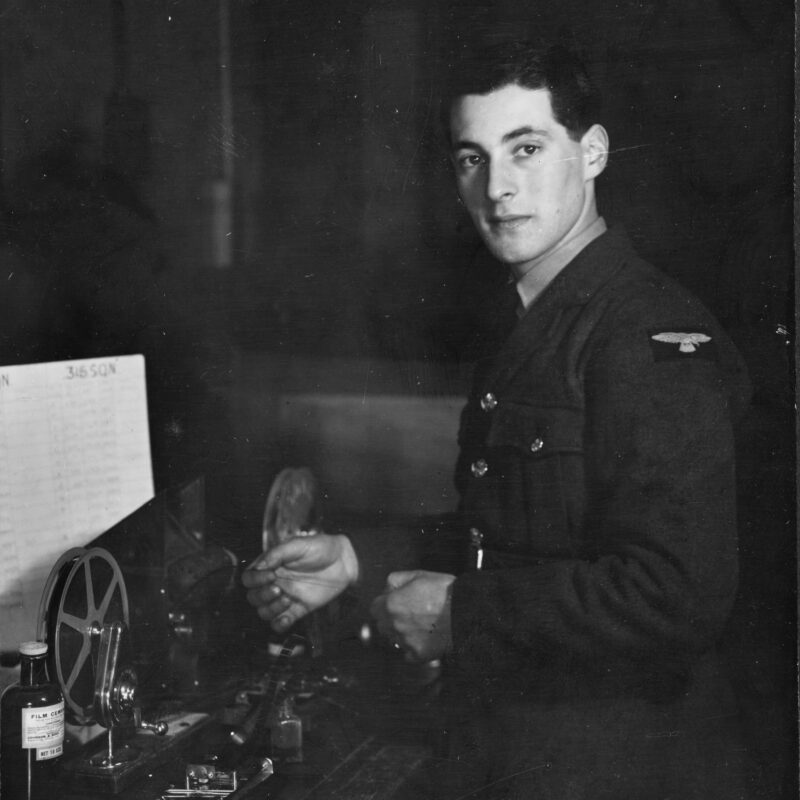 RAF Sergeant Johnny Jay at work for the RAF Film Production Unit at RAF Iver Heath, Pinewood Studios
RAF Sergeant Johnny Jay at work for the RAF Film Production Unit at RAF Iver Heath, Pinewood Studios
A pioneering women’s unit in military photography
The collection also reveals the little-known story of the contributions of the Women’s Auxiliary Air Force to photography and reconnaissance during the Second World War. The WAAF was founded in 1939 to fill non-combat roles in the RAF with women.
Chapman volunteered to join the WAAF before conscription was introduced. She was part of the first intake of women, 26 in total, to be trained at the No. 2 School of Photography (now the Defence School of Photography at RAF Cosford) in 1941.
The training of WAAF photographers like Chapman proved vital to the war effort. With an urgent demand for photographers skilled in aerial reconnaissance, it was essential for the training course to keep up with the rapid advancements in military air photography, which provided intelligence that was crucial to the progress of the war.
The collection sheds light on the comprehensive training programme at the School, where WAAF recruits were schooled in all aspects of photography, particularly in the use of air cameras. The images show women learning how to process films in mobile darkrooms, plotting aerial photographs and simulating work under active service conditions.
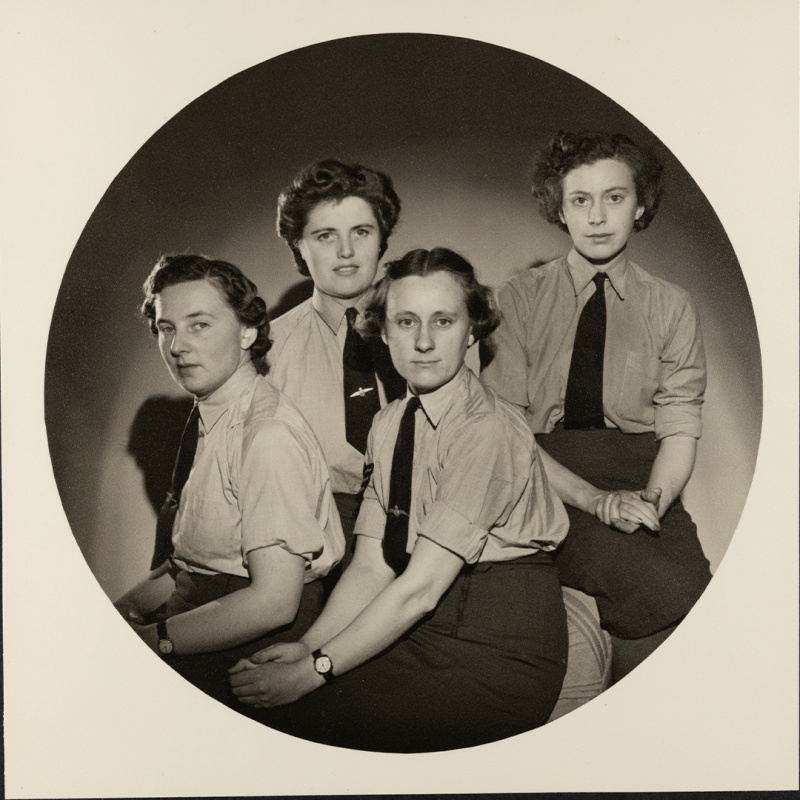 Portrait of WAAF personnel from the Stills department of the RAF's Film Production Unit, at RAF Iver Heath (Pinewood Studios)
(left to right) Leading Aircraftwoman Molly Plowman, Captain Lillian Lewis, Sergeant Knicky Chapman, and Leading Aircraftwoman Freda Pocock.
Portrait of WAAF personnel from the Stills department of the RAF's Film Production Unit, at RAF Iver Heath (Pinewood Studios)
(left to right) Leading Aircraftwoman Molly Plowman, Captain Lillian Lewis, Sergeant Knicky Chapman, and Leading Aircraftwoman Freda Pocock.
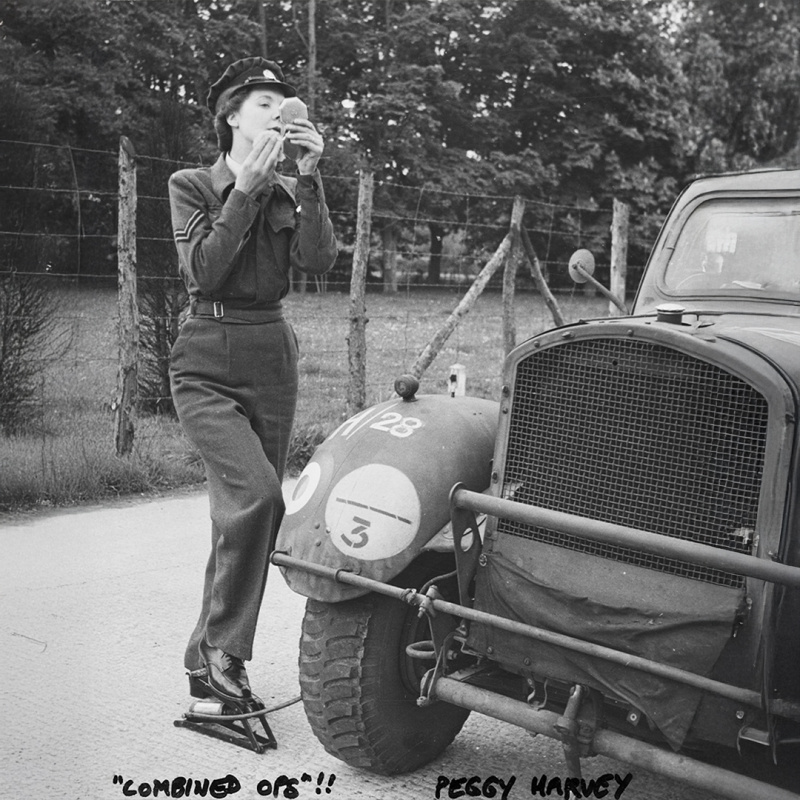 'Combined Ops!' - WAAF Corporal Peggy Harvey, in her uniform, doing her makeup whilst pumping up the tyre of a military vehicle at RAF Iver Heath, Pinewood Studios
'Combined Ops!' - WAAF Corporal Peggy Harvey, in her uniform, doing her makeup whilst pumping up the tyre of a military vehicle at RAF Iver Heath, Pinewood Studios
A social perspective of wartime life
Beyond capturing the training and work of the WAAF, the collection also showcases the social side of wartime life, revealing the lasting friendships and camaraderie formed by the women.
The photographs show Chapman and her WAAF colleagues playing sports, participating in dramatic productions and attending social gatherings at Pinewood Studios with RAF officers.
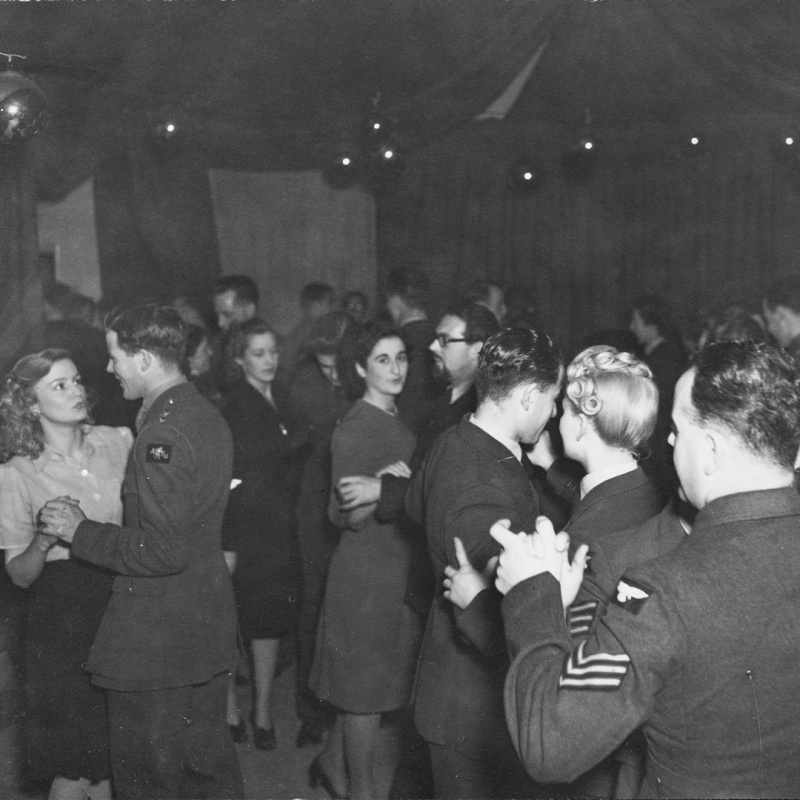 RAF and WAAF personnel dancing at the Sergeants' Party at RAF Iver Heath (Pinewood Studios), showing Walter Bird with an unidentified partner in the centre of the image
RAF and WAAF personnel dancing at the Sergeants' Party at RAF Iver Heath (Pinewood Studios), showing Walter Bird with an unidentified partner in the centre of the image
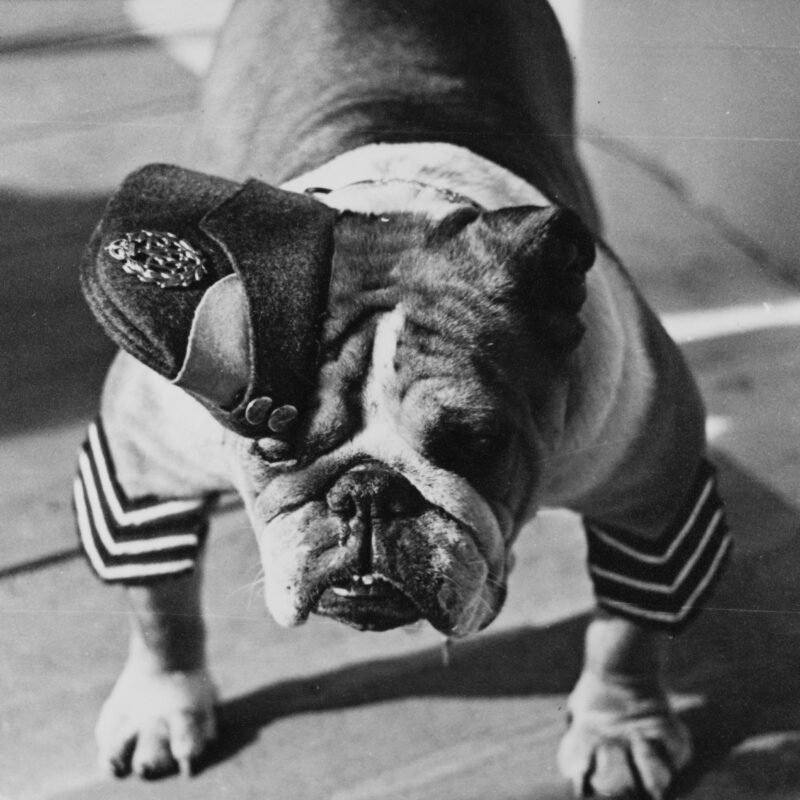 A British Bulldog in RAF uniform, at RAF Iver Heath, Pinewood Studios
A British Bulldog in RAF uniform, at RAF Iver Heath, Pinewood Studios
Share your stories of the women of the Second World War
Little is known about the lives of the women of the RAF Film Production Unit following the end of the war. While Chapman continued her passion for photography after the war, the demobilisation of the WAAF marked the end of these women’s lives in film.
Historic England is inviting people to share the stories of women who served in the RAFFPU and how their time in the WAAF has shaped their lives. Send your stories to communications@historicengland.org.uk before Sunday 25 May. The stories will be shared on the Historic England website.
“As we mark the 80th anniversary of VE Day, this remarkable collection commemorates the unsung heroes of the Second World War and sheds light on the history of wartime filmmaking. The photographs provide rare insight into a lesser-known aspect of our wartime heritage, from the crucial role of Pinewood Studios as the centre of military filmmaking to the pioneering women of the WAAF. By sharing this collection, we hope to honour the contributions of these women photographers and filmmakers to the war effort, preserving their stories as an important part of our national heritage.”
Duncan Wilson
-
Chief Executive, Historic England
Explore the Knicky Chapman collection in the Historic England Archive, by clicking the link below.
Photos: Historic England Archive
David Conway
On the 80th anniversary of VE Day we remember the pivotal role both Pinewood and our other UK studio, Shepperton Studios, played in the Second World War. We are honoured to be included in these rare photographs from Historic England’s Archive. Knicky Chapman’s collection provides a fascinating glimpse into the legacy of Pinewood Studios and brings the pioneering role of women to the forefront. We continue to host an annual Service of Remembrance at Pinewood, giving special recognition to the wartime film and photographic units who trained and worked here, and will never forget this important part of British film history.”
Chief Executive Officer, Pinewood Group
Baroness Twycross
“This remarkable collection reveals the vital role Pinewood Studios played during the war and shines a light on the hidden contribution of women like Knicky Chapman who broke barriers in military photography. As we commemorate the 80th anniversary of VE Day, this collection honours their contribution to our national story. Their legacy will continue to inspire future generations.”
Heritage Minister
